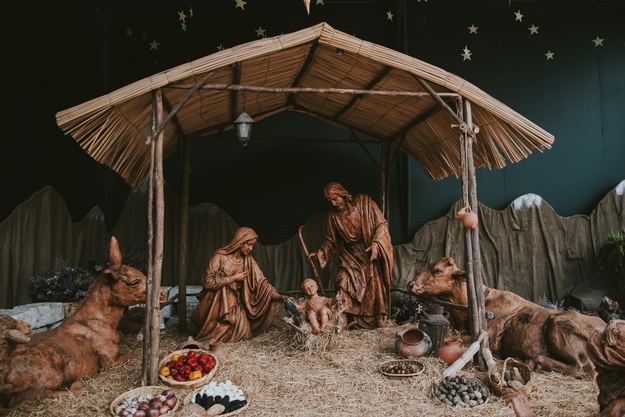What If Jesus Had Never Been Born?
Dec 24th, 2022 | By Dr. Jim Eckman | Category: Culture & Wordview, Featured IssuesThe mission of Issues in Perspective is to provide thoughtful, historical and biblically-centered perspectives on current ethical and cultural issues.

George Bailey is the hero of that sentimental movie classic associated with Christmas—Frank Capra’s 1946 “It’s A Wonderful Life.” George Bailey’s life was rather ordinary, but it was a life that fell frustratingly short of his ambitious dreams. Fateful decisions, piercing disappointments and the relentless threat of his nemesis, Mr. Potter, lead George to a moment of great despair: He is ready to jump off a bridge. But, through the intervention of an implausible angel named Clarence, George gets to see what his world would be like if he had never been born. It would be a darker, angrier and more violent Bedford Falls. Friends are strangers; an overgrown cemetery replaces the homes he helped build for needy families. In the end, he sees that life is worth living; that he did make a difference; that his life was “wonderful.”
What if Jesus Christ had never been born? Would the world be different? In a recent book by British historian, Tom Holland (Dominion: How the Christian Revolution Remade the World), Jesus and his movement called Christianity are characterized as “the most subversive revolution in human history, whose legacy is the ongoing disruption of settled patterns of life.” With his emphasis on love and human equality, Jesus undermined tyranny, racism, men’s abuse of women and selfish imperialism. He offered salvation to all humans and provided the foundation for a new kingdom, the kingdom of God—with values, virtues and standards that undermine the kingdom of darkness in this broken, fallen world. Jesus created “the most influential framework for making sense of human existence that has ever existed.”
Jesus shattered barriers. In the splendid TV series about Jesus’ life, “The Chosen,” Jesus invites Matthew to become one of his disciples. But, because Matthew is a tax collector, Simon Peter, already a disciple, vehemently protests: “I don’t get it.” To which Jesus replies, “You didn’t get it when I chose you, either.” “But this is different. I’m not a tax collector,” Peter retorts. Jesus responds, “Get used to different.” Jesus’ divine power and loving care were directed toward rescuing social outcasts, the downtrodden, strangers, and prostitutes. Indeed, Malcolm Muggeridge, the 20th century British journalist who converted to Christianity, observed that even in Jesus’ birth the circumstances “were calculated to establish his detachment from power and authority in human terms.”
But this history-altering event—what C.S. Lewis called “the Grand Miracle” of Christianity—makes our secular world quite uncomfortable. That world seeks to tame and domesticate Jesus; to make him more comfortable. It prefers Jesus in a crèche, warm and cuddly, surrounded by animals with a pulsating star overhead. But the message of Christianity is that He won’t stay in those swaddling clothes in that manger, any more than He would stay in a tomb wrapped in a shroud. The risen Christ dispels the darkness of humanity and offers hope: No other major religion has a founder who is God or one who dies so others may live. The vibrant epicenter of Christianity is that I did not enter God’s world; in shocking humility, He entered mine—and that is an eternally significant truth.
For Christians, then, Christmas is about Incarnation—the Creator stooping to enter His creation. The Incarnation challenges the proposition that this is a purely physical and purposeless universe, inhabited by cosmic accidents whose eternal value is doubtful. It also shatters myths about God: He is not distant and unreachable; He is not uncaring and unconcerned; He is not unmerciful and arbitrary. It is about God revealing Himself in Jesus as the loving, compassionate, merciful, gracious Savior, now forever identified with His creation. The Incarnation declares that God cares. For that reason, Christians always connect Christmas with Easter, for the death, burial and resurrection of Jesus afforded the path to redemption, to a life freed from bondage to darkness and despair.


